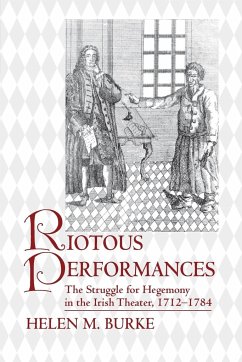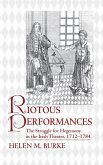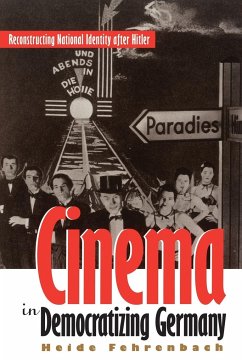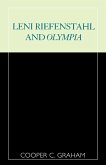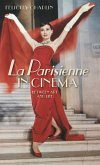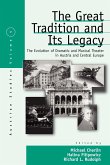"Riotous Performances is a thorough and daring analysis of the theater as a cultural space. Through this work Burke recovers the voices of the dispossessed Irish and the non-elite members of the Dublin audience. I think it will be essential reading for those interested in Irish Studies and eighteenth-century English literature." -Christopher Wheatley, Catholic University of America Riotous Performances explores the significance of theater "riots" and other disruptive practices that occurred in Dublin playhouses between 1712 and 1784. Helen Burke's study reveals that during this period Irish theater was a site of struggle between different ethnic, religious, and class factions competing for power in eighteenth-century Ireland. Key players in this drama included Irish Protestant patriots, an emerging Catholic middle class, a dispossessed native gentry, and an increasingly politicized Dublin "mob." Burke contends that these groups expressed their resistance to the ruling British culture through explosive acts as well as through more subtle counter-cultural behaviors such as wearing Irish manufactured clothing, singing Irish songs, and opposing the Theater Royal. Using a wide array of primary materials, including dramatic texts, newspaper accounts, pamphlets, broadsides, and songs, Burke places the riotous performances she describes in their social and political context. Her analysis reveals that in the 1740s and 1750s the theater was the focus of intense struggles between Catholic-identified gentry reformers and Protestant-identified populist reformers. But by the1780s new, united Irish themes were emerging in Dublin playhouses. She argues that the Irish Parliament passed the first Irish Stage Act in 1786 to contain these revolutionary theatrics. Riotous Performances demonstrates that eighteenth century Irish theater was not a static colonial institution, but rather a deeply contested arena of intense ethnic, religious, and class struggle.
Hinweis: Dieser Artikel kann nur an eine deutsche Lieferadresse ausgeliefert werden.
Hinweis: Dieser Artikel kann nur an eine deutsche Lieferadresse ausgeliefert werden.

